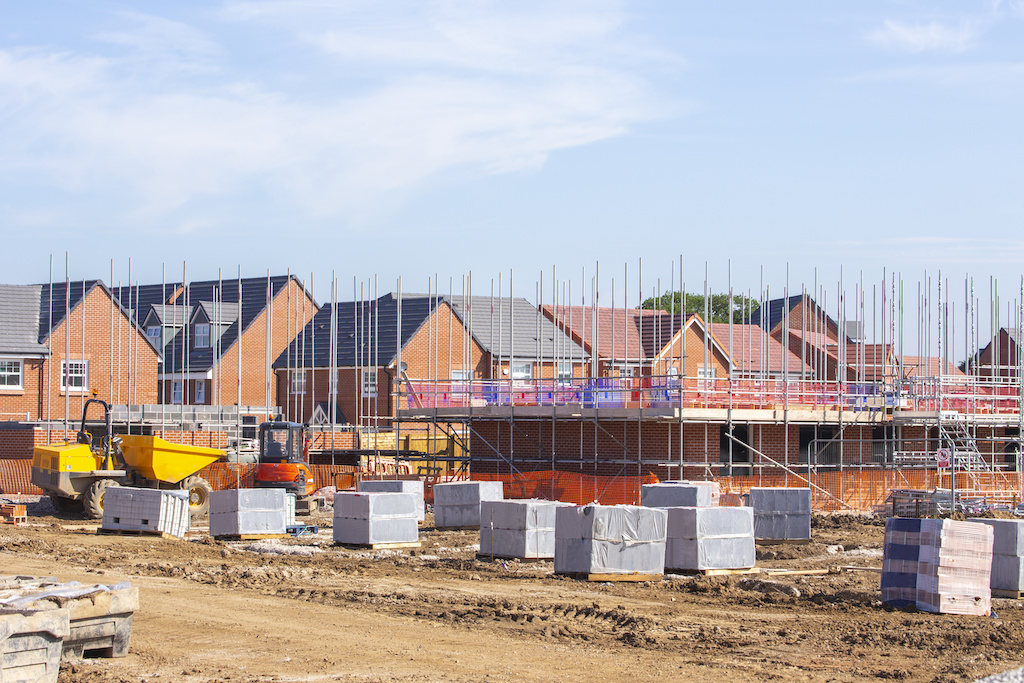
Within the recent Queen’s Speech – which outlines the government’s plans for the next parliamentary session – it has been confirmed that planning changes will now not feature in a bill in their own right, but as part of a new Levelling up and Regeneration Bill.
The changes aim to give local residents more say in developments and ensure they include affordable housing and new infrastructure. The new bill proposes the removal of Section 106 agreements, and it there place is a new non-negotiable levy, to be set locally, to deliver infrastructure improvements.
Response from the sector has been swift. Reacting to the announcement, the National Federation of Builders (NFB) has welcomed the ambition of the Queen’s Speech but says it is disappointed at the lack of detail on some key elements.
Richard Beresford, chief executive of the NFB, said: “Construction will be delighted to hear that local procurement processes are being reformed to help SMEs, Levelling Up will focus on employment and regeneration, and regulatory reforms for business and on EU policy are coming. It is also good to see the Government recognise that without greater powers, East to West high-speed rail will not get off the ground.
“However, planning reform, which is key to Levelling Up, didn’t offer anything on housing supply or to builders but instead concentrated on resident involvement and greater local powers. Similarly, despite the mention of an Energy Bill, social housing and Infrastructure Bank, planning, which enables these ambitions in practice, was not mentioned alongside them.”
The Royal Town Planning Institute (RTPI) has welcomed the Government’s commitment to reforming planning at the heart of the ‘Levelling Up and Regeneration Bill’, but warns that the levelling up agenda will remain compromised as long as the planning system is under resourced.
Victoria Hills, Chief Executive of the RTPI said, “Government will not be able to realise ambitions for housing delivery, better quality development and tackling regional imbalances without adequate resourcing to the planning system. Only then will the planners be able to help Levelling Up and regeneration, ensuring the right homes are built in the right places and to the benefit of communities.”
On an infrastructure levy, Victoria Hills said: “The RTPI has long advocated for locally set rates within an infrastructure levy. We believe that locally set rates will contribute further to consultations, helping to make this approach distinct.”
Calling for further reforms, Dave Sheridan, Executive Chairman of modular housebuilder, ilke Homes, said: “We’ve seen this week that DLUHC have all but abandoned the 300,000-homes-a-year target, while introducing a street votes policy that will empower local communities to have a say on local design codes. While encouraging more people to get involved in the planning system is welcome, these piecemeal reforms shouldn’t be used as a sticking plaster for urgently needed reform of the planning system – which so often holds back the delivery of much-needed housing and the consequential creation of jobs.”
Gavin Jefferies, Director of Communications and Strategy at housing provider Abri commented: “The introduction of the Levelling Up and Regeneration Bill, which promises to provide local leaders with the powers they need to revitalise communities, is another welcome priority. Housing providers will play a crucial part in the government’s ‘levelling up’ agenda, creating communities where people want to live. We believe that through strong local partnerships and a focus on delivering empowerment activities, we can build thriving and sustainable communities with more opportunity for all.”
Image: Abodestock/CeeBeeStock
